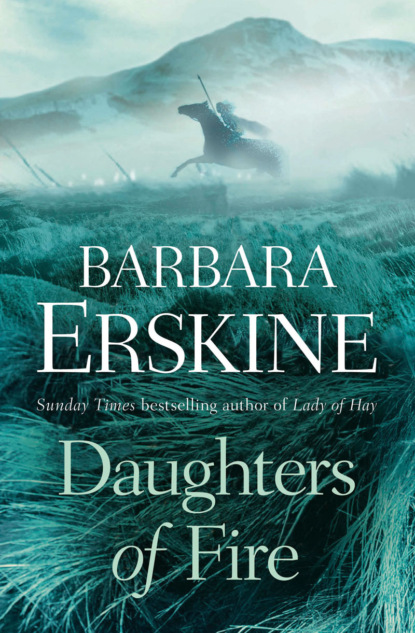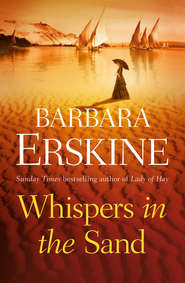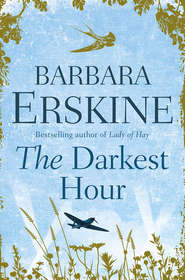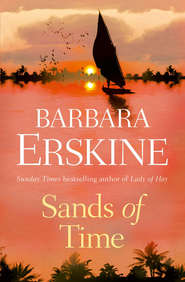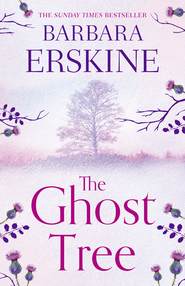По всем вопросам обращайтесь на: info@litportal.ru
(©) 2003-2024.
✖
Daughters of Fire
Автор
Год написания книги
2018
Настройки чтения
Размер шрифта
Высота строк
Поля
Pat was frowning. ‘I have a feeling you’re being a bit disingenuous there. No matter. If you’re not famous yet, you will be, darling! One way or another! History is a very sexy subject these days, so hopefully we can incorporate a bit of my know how and knowledge to make the play appeal widely, while keeping the academic integrity of the book as a serious study. Quite a challenge!’
There was a pause as Viv gave a wry smile. ‘My serious academic approach.’ Oh God, what had she got herself into? ‘Ah, but that’s maybe the trouble. Perhaps I’d better let you read it before you commit yourself to that opinion. The thing is,’ she hesitated. ‘I have a confession to make. Some of my sources are a bit suspect.’ She paused again. ‘That is the reason for Hugh’s antagonism. And my crossed wires with Maddie. The book does not perhaps come over as quite as academically based as you expect and the play has gone a bit off track for that reason. I kept trying to rein it in and it hasn’t worked.’
Pat looked puzzled. ‘You mean it is fiction?’
‘No, it’s not fiction.’ There was another momentary pause. ‘Well, perhaps it is. Read it, Pat. Please. The book and my attempts at the script. Then let’s talk again.’
4 (#ulink_06a56302-8d67-5c35-b187-bfa3cdec8c14)
I
‘You’ve got to give it back.’ Cathy stared at the brooch, awed. ‘Think of its value. The insurance. What if you lost it!’
They had gone back with her to collect a pre-publication copy of her book each, duly signed by the author, and the draft of the play. As Viv moved the box backwards and forwards in the sunlight to reflect its colours, Pat reached for it with a gasp of delight. For a few seconds she gazed at it, then she took off the box’s lid.
‘Don’t touch –’ Viv was too late. It was already lying in Pat’s palm.
‘Why not?’ Pat looked up curiously.
‘One should wear gloves.’ Viv shrugged. Who was she to talk? She shuddered.
Pat was staring down at it, frowning, studying it intently. After a moment she shivered and tipped it back into its box. ‘You know, that’s got a really nasty vibe,’ she said. ‘Isn’t that odd, for something so lovely.’ She handed it back to Viv with a grimace. ‘Cathy’s right, you should give it back to the horrid professor.’
And now they had gone and the brooch was back in its drawer and Viv was alone.
The voice was there, just outside her range of hearing. She found herself whispering out loud again. ‘This way madness lies.’
Schizophrenia. Spiritualism. Necromancy? In spite of herself she glanced round the room. Was Carta there, lurking in the shadows? She grimaced. The voice had told her everything which had made her work come alive. Those were the bits her publisher had liked; the bits Maddie liked. Those were the bits they all wanted more of. Natural. Lively. Real.
Too real.
Viv groaned out loud as a sudden wave of total terror flooded through her. ‘Carta?’ Her mouth was dry. ‘Are you there?’ The room was silent. She glanced up at the mirror which hung above her desk but the only reflection there was hers.
Then she heard it, the voice from the past, echoing in her head.
Vivienne?
She couldn’t ignore it. She wanted to know what it had to tell her. What Cartimandua had to tell her. Surely just to listen once more would not be dangerous?
The path to the cave was wet, the limestone steps slippery with moss. Carta walked slowly down it, the heavy wool of her skirt soaked as she brushed through the overhanging ferns. The roar of water in her ears was deafening. Here, where the river tumbled over the cliff the water dissipated into rainbows before plunging into the dark pool at the foot of the rocks. She often came here. It was a sacred place, a place where the goddess of the hill spoke to her. Where she brought her hopes and fears. And her dreams.
The gods were everywhere, but here in this dark place between earth and water, hidden from the sky, she felt close to them. So close she could communicate especially with her own tutelary spirit, Vivienne. She had been puzzled by the name. Ninian was a name she knew, but this female daughter of the gods was a stranger. Perhaps a goddess who had come with the Roman or Gaulish merchants who from time to time travelled the trade routes up the River Humbte from the coast, or perhaps one who had arrived from the west with the trading ships from Erin. Hers was a voice which reached Carta from beyond the mists which separated the world of the spirits from the world of men and women.
Pulling her cloak more tightly round her shoulders, she ducked through the curtain of ferns and grasses into the darkness. The offerings she had left before the small carved figurine had gone. The lamp had long ago blown out. Reaching into her bag she brought out fresh offerings to the spirits that dwelt in the cave. Be they gods or little people, animals or birds, it was right that they be rewarded and thanked for allowing her to use this place.
The small hollow horn in her bag, carefully stoppered with a plug of wax, contained oil for the lamp. She lit it quickly and easily, sparking dried moss and holding it to the lamp’s wick, and then she sat down silently, eyes closed, to wait for the clear thoughts she sought.
The sound of running water faded as the silence deepened and at last she began to speak. There was much to tell. Much to ask of the goddess of the hill.
The decision had at last been made. She was to be sent as fosterling to the house of the king of the Votadini. Such arrangements were usual. Her brothers too would leave the house they knew to live with other family groups or tribes. Thus were alliances made; friendships between boys which hardened as they grew into warriors, and matches between girls and young men which would be sealed by marriage as a man or his father or mother chose the wives who would expand and ensure a dynasty. She was happy with this. It was part of her destiny. Companions would go with her on the journey north : Mellia and Mairghread, the daughter of her mother’s best friend, who was the same age as she was and with them two slaves, Pacata and Éabha, who had looked after her since she was a baby and with whom she had formed a close friendship. Best of all her youngest brother, Bran, was part of the group as, with horses and carts and wagons full of possessions and gifts the procession left her father’s dun at dawn, winding its way down the great hill on a spring morning, blessed and escorted by the Druid, Eochaid, who in a moment of gentleness had saved her bitch Catia. The bitch and both pups, already grown, followed at her pony’s heels. Behind her, her mother and father and the people of the whole community had turned out to wave them farewell. Her mother, normally so strong, so determined, was crying softly. She had given her daughter a string of sacred beads to wear around her neck and keep her safe. Her father had pressed a lucky charm into her hand. Her only worry was that Venutios, alone of the children, was to remain, foster son to her father, to be trained by him as a warrior without her or her brothers there to keep an eye on him. The thought did not trouble her for long. There was too much to think about in the new exciting days ahead.
Spring had thrown a gentle mantle of green across the bleak hills and stark winter trees. Lulled by the rattle of the carts, the squeak and creak of harness and the warm familiar smell of oxen and horses she looked around her eagerly, exhilarated by the idea of the coming adventure.
Beside her Mellia was sobbing quietly as she rode. Carta glanced across at her companion with a flash of irritation, her own momentary sadness already forgotten. ‘You’ll see your mother again, Mellia. Do cheer yourself up. Look what a glorious day we have to start our journey. And think where we are going. It will all be new and wonderful.’ She had not realised until almost that moment how much the thought of change excited her. New faces. New places. Perhaps she was about to meet the man she would marry and with whom she would have children. At that thought, her face reflected a wave of distaste, perhaps a frisson of fear. Her small fingers clenched on the soft leather reins as her mouth turned down at the corners and her pony, feeling the tension on its jointed snaffle bit, shook its head indignantly. At once she was back from the lurking shadows of that particular thought and at one with her horse, gentling, reassuring, her eyes on the track ahead where even as she watched, the lead wagon lurched to a standstill, its wheels mired in the mud.
Descending at last from the fells onto the plains the track joined the wider road of one of the main trade routes which led from the south through the rich lands of the Brigantian tribes, north towards their capital, the sprawling settlement of Dinas Dwr, seat of the high king. From there they journeyed on following a well-used network of roads and tracks, ridgeways and carefully constructed and maintained causeways where the track led across low-lying and marshy ground. They were passing homesteads and farms, townships, villages and trading posts, communities of workshops and mining areas where lead and silver were extracted from the living heart of the land. In places they were travelling through forests and over open moors and in others along the cliffs which to Carta’s great delight, bordered the great Northern Ocean.
They were expected. Lookouts had alerted their hosts as their party forded the broad river which separated the territories of the Brigantes from those of the Votadini. Their escorts were waiting on its far bank. Carta eyed their warriors critically. The men rode sturdy horses and they rode them well. The war chariots of the warriors were well made and elegantly decorated, drawn by fine ponies.
The leader of the band jumped from his chariot and came forward to greet them. To greet her. Ignoring everyone else he came towards her, a girl of some twelve summers only, his hands outstretched to clasp hers. ‘Greetings, cousin! I am Riach. I trust your journey has not been too long and arduous?’ He was young too. Not as young as she was but still unbearded. His smile was huge, infectious in a broad-browed, tanned face, his eyes a piercing blue, the swirling tattoos decorating his forehead and temples expertly executed. From the golden ornaments at his neck and on his arms she guessed he must be a son or foster son of the royal house and she was suddenly very conscious of her own shabbiness. She was covered in splashes of mud from the journey. Her hair was uncombed and matted. The overnight stays they had made at farms and forts along the way and the two nights camping on the moors had not provided ideal conditions for primping and preening. She had not unpacked clothes or combs or her mirror, although doubtless her mother’s slaves had put them in her bundles, and never before had she bothered about what the small animated face which looked out from beneath her frowsty hair looked like. Or cared about jewellery beyond the simple silver bracelet on her wrist and the string of protective amber beads about her neck. She frowned. A queen would care. A woman who was going to be a queen should care.
The young man into whose eyes she stared for two whole heartbeats before turning away, embarrassed, would care.
Snatching her hands from him, her face scarlet, she ran to climb back on the wagon she shared with the other women when too tired to ride another mile. Not a queenly mode of transport. Not at all. Under her breath she made a vow that day. Never again would she travel with slaves. She would demand her own light-cart, a war chariot of her own, and her own two matched horses to pull it and they would one day be the best in the whole of the Pretannic Isles.
Watching her, the boy laughed. He could see her discomfort and her shame, sense her pride; in fact he suspected he could read her very thoughts. But nothing about her displeased him. On the contrary. He admired her already for her courage and for her looks which under all the dirt were striking and would one day be spectacular. Which was just as well as his father had informed him that this child, as soon as she reached womanhood, would be his wife.
II
Viv started out of her reverie, shocked, her heart thudding as she stared round disorientated. She could still feel the heat and the cold. Sense the mud and the dirt, smell the sharp tang of the pine needles beneath the horses’ feet, the earthy mist which hung low and cold over the bogs as the ox-carts and wagons rattled through the dales between the ranges of windswept fells, across the causeways and for a moment she was aware, just as the child Carta became aware, of the dirt beneath her fingernails and the strong smell of horse on her skin.
The detail. She must not forget the detail. Overwhelmed with excitement she pulled open a drawer in her desk with shaking hands and she extricated a pack of microcassettes. Slamming one into her little recorder she plugged in the mike, then as an afterthought she reached for a scribbling pad and ballpoint pen. She had to go back again. At once.
A bolt of fear hit her. She took a deep breath. There would be no danger now, surely. Now Carta knew she was listening.
‘OK, lady. I’m ready this time.’ She sat down at her desk and reaching forward she pressed the record button and picked up her pen.
Carta gazed at the hill fort in front of them in open-mouthed amazement as it rose out of the trees in the distance. Even from here she could see it was at least twice the size of Dun Righ, her home. They were travelling through rich farmland here, passing homesteads much like those they had passed continuously on their journey, but this fort was like nothing she had seen before: buildings clustered all over the top of the steep hillside of what had once been a volcanic crag, and as they moved closer she saw how truly enormous the fort was with its triple ramparts topped by a sharp, pointed palisade and huge gateways. The young man was riding beside the wagon now. ‘Dun Pelder.’ He grinned as he waved towards the settlement. ‘Fortress of Spears. We’re nearly there.’
The track led in between two gatehouses in the encircling walls, then climbed steeply, winding up the terraced sides of the hill between huge round houses, some built out onto the terraces themselves, with other buildings clustered near them. The Brigantian visitors were led to the guest house beside the largest round house of all, clearly that of the king himself. Noisy crowds were gathering about them already and she could smell woodsmoke and cooking as, suddenly shy, she edged closer to her companions.
Riach leaped from his chariot and came to the side of the wagon. With a bow he reached up to help Carta down. ‘You will be anxious to rest and change your clothes,’ he said, solemnly looking down at her. ‘Later my father will greet you and we will all eat together this evening. A huge feast is being prepared to welcome the lady of the Brigantes and her brother.’ He grinned at Bran, who had reined in his pony beside them and beckoned him closer. Bran and his companions would lodge in the house of the warriors, where the unmarried aristocratic young men of the tribe and leaders of visiting war bands slept.
The guest house was larger than her father’s feasting hall. She stared round in awe. The hearth was piled high with logs and crackled merrily and the interior of the building was lit with dozens of lamps. The central area was well provided with benches and sumptuous cushions and behind them the small sleeping chambers around the walls were furnished with bed boxes piled high with heather mattresses, woollen blankets and soft silky furs. Carta continued to stare open-mouthed as slaves carried in her belongings before moving the wagon-load of gifts sent by her father further up the hill to the king’s house.
‘Look, Carta.’ Mellia was standing in front of the table in the largest of the small chambers, much more cheerful now the long journey was over. ‘This must be where you are to sleep. Look at the things they have put here for you.’ Her voice was full of awe. There was a delicately worked bronze wash basin, exquisitely carved bone combs, a bronze mirror inlaid with coloured enamels. Already slaves were bringing jugs of hot water for her from the cauldron hanging over the central fire.
Carta was impressed and for once struck dumb. Meekly she allowed Pacata and Éabha to strip off her mud-caked clothes and wash her body with the sweet-scented soapwort solution they found waiting in a jug beside the basin. Then they dressed her in a clean linen gown and a plaid woollen mantle quickly dug from one of the packs and threaded pretty glass beads through her hair. They slipped on her best soft leather shoes and stood back to admire their handiwork. She looked almost respectable.
Lugaid, King of the Votadini, was a short, thick-set man of nearly forty summers, his long dark hair, bleached and stiffened with lye, caught back behind his head and tied with a leather thong. His face was scarred from a long-ago battle encounter which had made his eyebrow twist into a permanent quizzical loop and it said much for his strength and regal manner that this had not disqualified him from sacred kingship. He was terrifying. From his four wives he had fifteen children. Riach was the youngest of four sons by his senior and favourite wife, Brigit.
Brigit greeted Carta with a hug. ‘So, my new foster daughter, you are welcome here.’ Her arms clanked with silver bangles that caught the firelight in the great feasting hall.
Glancing up shyly, Carta noticed that the hall boasted a huge gallery, screened with wattle and hung with woven curtains. Brigit followed the girl’s glance.
‘That is the women’s chamber. We will withdraw there after the feast, but meanwhile you will sit with me and Riach.’ Taking her hand, Brigit drew Carta close beside her and led her to a bench, where she sat down amongst the warriors and the nobles and their wives and the dozens of strangers who all seemed to be casting covert glances in their direction.
From the shadows a harper began to play as the doors were flung wide and a succession of huge trays of food were carried in.





